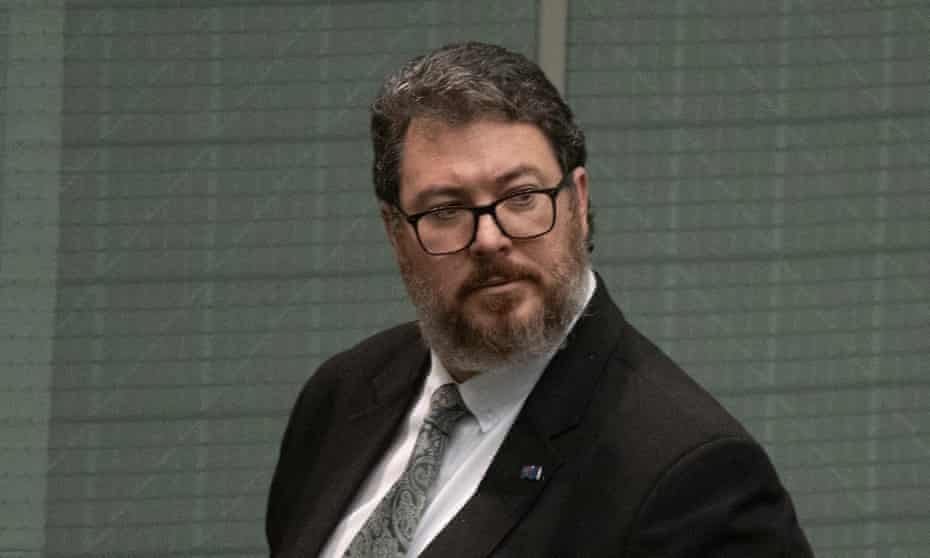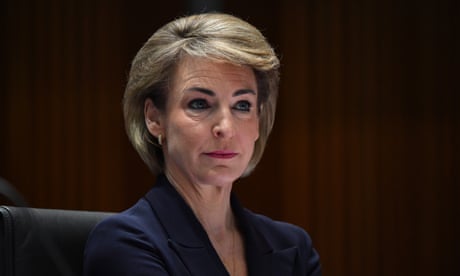Extract from The Guardian
Labor leader calls on Morrison to condemn member for Dawson after he likened mandates to decrees by ‘Hitler and Pol Pot’

Senior ministers on Wednesday persuaded two rebel Liberal senators, Gerard Rennick and Alex Antic, who have threatened to withhold support for government legislation, to support the government on procedural votes during the final sitting fortnight. The government has agreed to a tweak to the vaccine indemnity scheme.
But divisions were on show in the lower house where Christensen and Broadbent used the opportunity of member’s statements before question time to ventilate their objections to mandates, with Christensen comparing the requirement to decrees by dictators like “Stalin, Mao, Hitler and Pol Pot”.
The Labor leader, Anthony Albanese, demanded Morrison “unequivocally and without reservation” condemn Christensen’s call for a public uprising.
Morrison responded by telling parliament that, as “the son of a police officer”, he believed everyone should obey the law.
Albanese returned to the dispatch box to invite Morrison “to directly condemn the member for Dawson for the very specific comments that he has made”.
Morrison said he condemned “any encouragement, any encouragement whatsoever by any person in any place regarding acts of civil disobedience” and then attempted to return fire by drawing attention to a historical comment by the ACTU’s national secretary, Sally McManus, arguing if laws were unjust then there wasn’t a problem with breaking them.
Morrison was chided by the new House of Representatives Speaker, Andrew Wallace, who told the prime minister to remain relevant to the question. But Morrison was aided by crossbencher Bob Katter who invited the prime minister to reflect more expansively on the comments by McManus.
Later on Wednesday, Christensen crossed the floor to vote with Labor on a litigation funding bill. Broadbent, having signalled his objections, is not intending to join colleagues in refusing to vote for government measures.
With a handful of MPs threatening not to support government legislation until Morrison intervenes on compulsory vaccinations, the government is battling to secure support for its controversial voter ID legislation. There are also ongoing skirmishes about the government’s religious discrimination laws.
On Wednesday, Sam McMahon, the Country Liberal Northern Territory senator, warned she “might not be able to vote” for the voter ID laws, citing “concerns about how they’re going to impact, particularly Indigenous territorians”.
“I think there’s very little, if any, evidence of voter fraud in the Northern Territory,” she reportedly told NITV.
Senate support for the voter ID bill is finely balanced, with the Coalition needing to persuade its own hold-outs, One Nation, and either Jacqui Lambie or Stirling Griff for the measure to pass.

The government wants that proposal passed before parliament rises for 2021, and extended sitting hours in the House of Representatives on Wednesday night to facilitate debate. Labor opposes the change.
Assuming it can corral its own internal rebellion, the government will attempt to persuade Senate crossbenchers to pass the legislation expeditiously without subjecting it to a new Senate inquiry.
But in a report tabled late on Wednesday, the parliamentary joint committee on human rights concluded the special minister of state, Ben Morton, had failed to demonstrate that cracking down on multiple voting is “pressing and substantial enough to warrant limiting human rights”.
The committee had warned earlier in November that “no evidence” had been given to show how the bill would prevent fraud, an observation it repeated on Wednesday with respect to voter impersonation after it received Morton’s response to a request for more detail.
It noted the bill’s safeguards to prevent people being excluded from voting but warned of a risk it could “impermissibly limit the right to participate in public affairs” especially for certain groups that would be “disproportionately” affected (such as Indigenous persons in remote communities, people experiencing homelessness and those fleeing domestic violence).
No comments:
Post a Comment